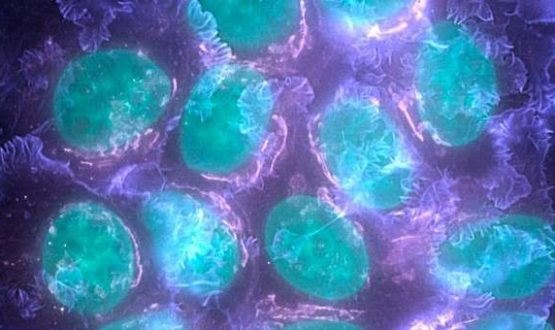Researchers at QIMR Berghofer have discovered a set of genes that could be used to predict the survival of breast cancer patients. The findings could in future help to determine which patients would benefit from additional treatments.
The scientists, from QIMR Berghofer’s Control of Gene Expression research group, have also discovered one of the factors that can cause breast cancer to grow more aggressively.
The findings have been published in the Proceedings of the National Academy of Science.
Dr Jason Lee said G9a was a molecule that promoted tumour growth.
“When conditions are normal inside the body, a change occurs to this molecule and it breaks down, making it harmless,” Dr Lee said.
“However, we have discovered that inside a tumour, where there is very little oxygen, that change doesn’t occur to the molecule, meaning it doesn’t break down and instead starts to accumulate.
“This accumulation of the molecule G9a then makes the tumour grow more aggressively.”
Dr Lee said the team had also found that G9a silences certain genes.
“We don’t yet know what these genes control, but we found that when these genes are switched on, patients tend to have better survival rates, and when they’re switched off, patient survival tends to be worse.
“In other words, these genes are predictors of whether patients are likely to experience a recurrence of their cancer.”
Professor Frank Gannon said when the group tested an available drug that targets G9a, they found tumour growth more than halved.
“We are now working with international collaborators to develop a potential new treatment,” Professor Gannon said.
“The available drug we tested appeared to be effective in all types of breast cancer, but particularly in estrogen-receptor-positive (ER+) breast cancer, which is the most common form. While most of these patients respond well to treatment, about a quarter develop resistance to the treatment they receive.
“We hope that in future, we will be able to test patients for the genes controlled by G9a to determine which patients are likely to experience a relapse and need further treatment.
“Only those patients could then receive the treatment, which would be more cost effective and save patients from unnecessary drugs.”
The study involved internal collaborators at QIMR Berghofer Medical Research Institute.


